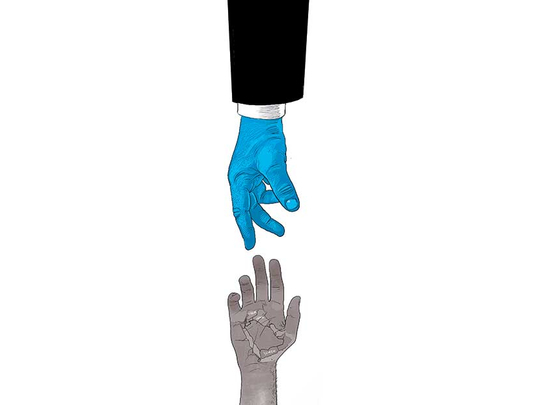
The United Nations is doing surprisingly well for an organisation that has lost a lot of the respect that it previously held as the arbiter of international conduct. Its repeated side-lining by superpowers has left the UN floundering without a serious role. Yet, the UN is still the only body that can muster any genuine multilateral authority, and it has a vast reserve of institutions that work under its broad aegis, giving it unique access to do a lot of good that no other institution can match.
This is why the UN is taking a major role in trying to find a peaceful solution in Yemen, and why it is in the lead of pushing to get the Syrian factions to start talking in the Geneva process (even though the Russian-backed alternative peace talks have gained some traction).
A further centrepiece of UN activity in the Middle East remains the international deal on Iran’s controversial nuclear programme that was frequently seen as a United States-Iran deal, but in fact had to pass through the G5+1 group in the UN, comprising the five permanent members of the UN Security Council (US, Britain, China, France, Russia) plus Germany.
The Iran deal’s on-going Joint Comprehensive Plan of Action (JCPOA) is monitored by the United Nations and further confirmation of the practical authority of the UN deal came from the Republican Speaker of the Senate, Paul Ryan, who this week said the nuclear agreement with Iran is probably going to stay in place, despite significant Republican opposition to the deal. He said that it would be difficult to bring back the international community to a point where many countries would isolate Iran, and would be impossible to reconstitute the previous multilateral sanctions.
The UN still has the capacity to create controversy like when the Economic and Social Commission for Western Asia (ESCWA) published a report earlier this week that accused Israel of apartheid over its treatment of Palestinians.
It was unfortunate that the new UN Secretary-General, Antonio Guterres, immediately distanced himself from the report and ordered it to be withdrawn. This forced the formidable ESCWA head, Rima Khalaf, to resign, saying that the report was amply justified. Khalaf is the much-respected Under-Secretary General who was director of the Regional Bureau for Arab States at the United Nations Development Programme from 2000 to 2006, where she was behind the pioneering Arab Human Development Report, which played a huge role in defining the demographic crisis that is descending on the Arab world.
Today Yemen is the UN’s major political focus in the Middle East, as UN Resolution 2216 is the centrepiece of any serious peace plan, and the UN Special Envoy, Ismail Ould Shaikh, is leading the process of peace talks that are Yemen’s main hope of finding peace and a stable government. Successive rounds of talks have taken all sides to various capitals where they have got close to success, but never quite made it over the finishing line.
Direct rebuff
An indication last month of the seriousness with which all sides regard the UN efforts is that a high-ranking Al Houthi official asked Guterres to not renew the appointment of Ould Shaikh for what the Al Houthi called a “lack of neutrality”.
In a direct rebuff, Guterres said that the envoy has the full support of the UN in his impartial and professional attitude to the task. In a different move but one also linked to continued great expectations of the UN, the Saudis called on the UN to think about taking the northern port of Hudaidah under UN supervision so as to impose some kind of law and order on the port, describing it as a conduit for weapons-smuggling and people-smuggling under it current Al Houthi occupation.
But the UN is doing a lot more in Yemen than running peace talks. The UN’s Food and Agriculture Organisation is active in monitoring the situation in which the civilian population has found itself trapped, and earlier this year reported that “Yemen is facing the largest food security emergency in the world”, and estimated that the country’s domestic reserves of wheat would be completely exhausted by the end of this month.
And the UN High Commission for Human Rights has been active in trying to get all sides to avoid using the civilians as part of the fighting. It also pointed out that if Hudaidah port is seriously damaged, the catastrophic humanitarian situation in the country would spiral further downwards.
It is to be hoped that all the work to find a political solution will work, and the parallel efforts to have enough knowledge about how to rescue the humanitarian situation will allow the building blocks of a reconstruction to be in place. But a similar search for peace, as in Yemen, is also needed in Syria, Iraq and maybe in Somalia and elsewhere. The list is endless and the UN needs the necessary global support to at least offer some hope to the suffering people that superpowers are not able to do.










